Helping wild Hedgehogs
At PAWS, as well as helping you care for your domestic pet, we also want to help you look after the wildlife you might find in your back garden.
In Britain, we are extremely lucky to have so much wildlife around us and there are a number of ways we can help the animals that come into our gardens in their hunt for food. The type of garden you have will determine the type of wildlife it will attract. A garden with few plants, trees and grass will attract less wildlife than one with lots of hedges and flowering plants which provide food and shelter. Ponds will attract insects and amphibians, while compost heaps can be a great shelter for hedgehogs.

 These prickly little creatures are nocturnal and can be found in gardens all over the country. A compost heap or pile of leaves makes a comfy hiding place for a hedgehog, especially between November and March when they hibernate, so be careful when clearing your garden during this period.
These prickly little creatures are nocturnal and can be found in gardens all over the country. A compost heap or pile of leaves makes a comfy hiding place for a hedgehog, especially between November and March when they hibernate, so be careful when clearing your garden during this period.
Diet
- Slugs
- Earthworms
- Beetles
We stock Spikes Hedgehog food which is recommended by the British Hedgehog Preservation Society.
How to attract hedgehogs into your garden
Some people like to leave out milk and bread for hedgehogs, but this can make them ill. Provide a saucer of water and hedgehog food, as this is much more digestible for them. Avoid feeding hedgehogs with dog or cat food as only a few, specific types are suitable food for hedgehogs.


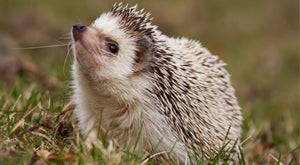
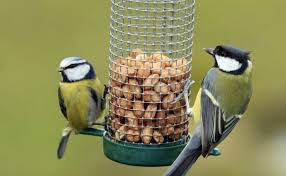

 There are 592 species of birds native to the British Isles, and gardens are an important habitat for some of these birds, not just for food and shelter, but also for rearing their families. The most likely visitors to your garden will be starlings, house sparrows, blackbirds, blue and great tits, robins, greenfinches and collared doves. It is great fun to spot the different varieties of birds that might visit, and to observe their fascinating behaviour and colours. There is plenty you can do to help encourage and attract them into your garden.
There are 592 species of birds native to the British Isles, and gardens are an important habitat for some of these birds, not just for food and shelter, but also for rearing their families. The most likely visitors to your garden will be starlings, house sparrows, blackbirds, blue and great tits, robins, greenfinches and collared doves. It is great fun to spot the different varieties of birds that might visit, and to observe their fascinating behaviour and colours. There is plenty you can do to help encourage and attract them into your garden.

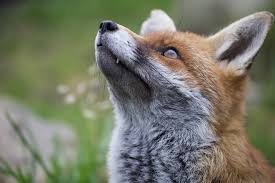


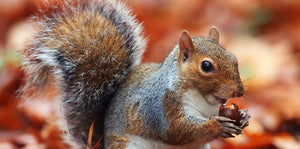
 Originally Native to
Originally Native to  The red squirrel is very rare, so you are far more likely to see the grey squirrel in your garden. They
The red squirrel is very rare, so you are far more likely to see the grey squirrel in your garden. They 
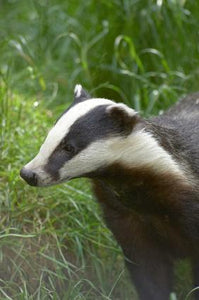
 Badgers grow to around 90cm in length and have characteristic black and white stripes on their head. These animals are nocturnal and are rarely seen in urban areas. They spend a lot of their time in their ‘sett’ – a large maze of tunnels and passageways where they live. Nevertheless, during the summer months they sometimes wander into gardens and across roads looking for food.
Badgers grow to around 90cm in length and have characteristic black and white stripes on their head. These animals are nocturnal and are rarely seen in urban areas. They spend a lot of their time in their ‘sett’ – a large maze of tunnels and passageways where they live. Nevertheless, during the summer months they sometimes wander into gardens and across roads looking for food.